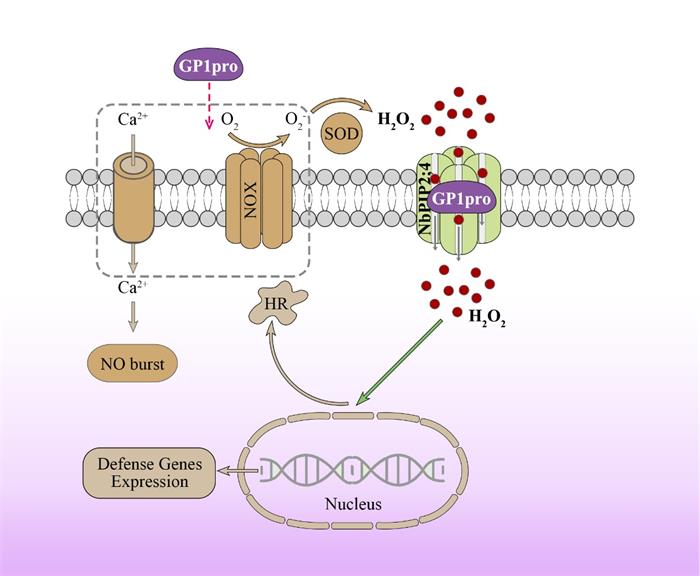On June 1st, the team for the creation and application of natural product pesticides in our college published a research paper entitled "Protein elicitor GP1pro targets aquaporin NbPIP2;4 to activate plant immunity" online in the journal "Plant, Cell & Environment". Former doctoral student Sun Yubo and current doctoral student Ren Xingyu were co-first authors, with Professor Feng Juntao and Professor Han Lirong as corresponding authors.
Aquaporins (AQPs) are widely distributed in all living organisms and play important roles in physiological processes and stress responses. In plants, AQPs regulate the transport of H2O2, thereby participating in the regulation of PTI, SAR and other immune response mechanisms in plants.
This study revealed the mechanism by which the protein elicitor GP1pro from Streptomyces kanasensis ZX01 activates plant immunity by targeting the tobacco aquaporin NbPIP2;4. GP1pro is a protein component of the glycoprotein GP-1 isolated and identified from Streptomyces kanasensis ZX01. It induces the production of reactive oxygen species (ROS) and hypersensitive response (HR), as well as the expression of resistance-related genes and the accumulation of secondary metabolites, ultimately activating the plant's defense response. Further analysis revealed that GP1pro interacts with the plant plasma membrane PIP2 family aquaporin NbPIP2;4 and is located on the plant plasma membrane. Overexpression and silencing of NbPIP2;4 in tobacco confirmed that NbPIP2;4 plays an important role in GP1pro-induced plant defense response, and GP1pro can significantly promote the transport capacity of NbPIP2;4 for H2O2. These results indicate that GP1pro activates plant immunity by targeting the plant aquaporin NbPIP2;4, promoting the transport of H2O2 from the extracellular matrix to the cytoplasm, initiating host cell defense, and regulating plant immunity. This study provides a green control strategy for plant protection and a research basis for target-based molecular design.
Team members Wang Yong, Yan He, and doctoral student Guo Wenhui participated in the the project. And the study was supported by the National Natural Science Foundation of China.

Original link: https://onlinelibrary.wiley.com/doi/full/10.1111/pce.14634